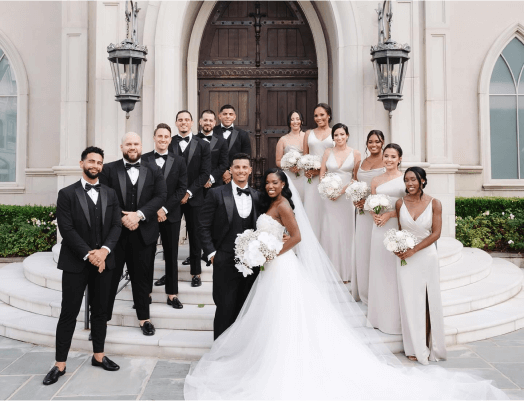How Many People to Invite to Your Wedding
- Author: Natali Grace Levine
- Reading time: 7 min 19 sec
- Publication date: 04/21/2023
- Updated: 01/31/2026
Your wedding day is one of the most special and memorable moments in your life, and you want to share it with the people who mean the most to you. But with limited space and budget, it can be a challenge to decide how many people to invite to a wedding. Should you invite your entire extended family, or just your closest friends and immediate family members? The decision can be a daunting one, and it's important to consider various factors before making a final guest list. In this article, we will explore the various factors you should consider when determining how many people to invite to your wedding, as well as some tips to help you narrow down your guest list and ensure that your special day is one to remember.
Find Your Perfect Wedding Vendors
Factors To Consider When Planning Who To Invite To Your Wedding
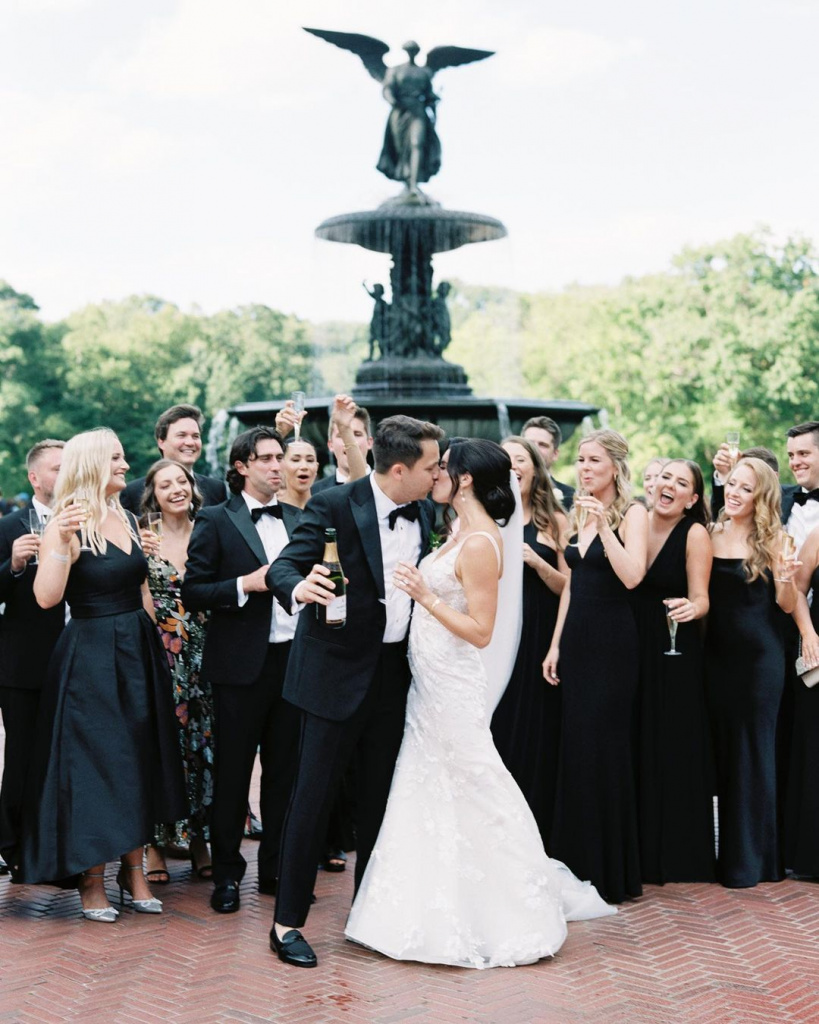
When putting together your guest list, there are a bunch of issues to think about. Here are some things you might want to take into account:
Your budget: Your budget is one of the most important factors to consider when putting together your guest list. The more money you have to spend, the more guests you can invite. If you're working with a tight budget, you'll need to be more selective about who you invite.
Venue size: The size of your venue will determine how many people you can comfortably accommodate. Make sure you choose a venue that can comfortably fit your guest list, taking into account things like tables, chairs, and other equipment.
Close friends and family: Your closest friends and family are usually the first people you'll want to invite to your event. These are the people who mean the most to you and who you want to share your special day with.
Significant others: If you're allowing your guests to bring a date, you'll need to factor in the additional guests when determining your guest list size. Keep in mind that allowing plus ones can significantly increase your guest count.
Work colleagues: Inviting coworkers can be a great way to expand your guest list, but you should be selective about who you invite. Only invite those you're close to and who you want to celebrate with outside of work.
Friends of friends: Inviting friends of your friends can be a good way to meet new people and expand your social circle, but you should be careful not to invite too many people you don't know well.
Kids: If you're allowing kids at your event, you'll need to factor them into your guest count. Keep in mind that children often require additional space and resources, such as high chairs and entertainment.
Plus ones: Allowing your guests to bring a plus one can be a nice gesture, but it can also significantly increase your guest count. Consider setting some ground rules, such as only allowing plus ones for married or engaged couples.
People who live far away: If you're inviting people who live out of town or out of state, you'll need to give them plenty of notice so they can make travel arrangements. Keep in mind that some people may not be able to attend due to the cost or time commitment.
Cultural/religious traditions: If you're honoring certain cultural or religious traditions, you'll want to invite people who will appreciate and respect those traditions. Keep in mind that some guests may not be comfortable participating in certain traditions, so be prepared to be flexible.
How Many People To Invite Based on Your Type Of Wedding
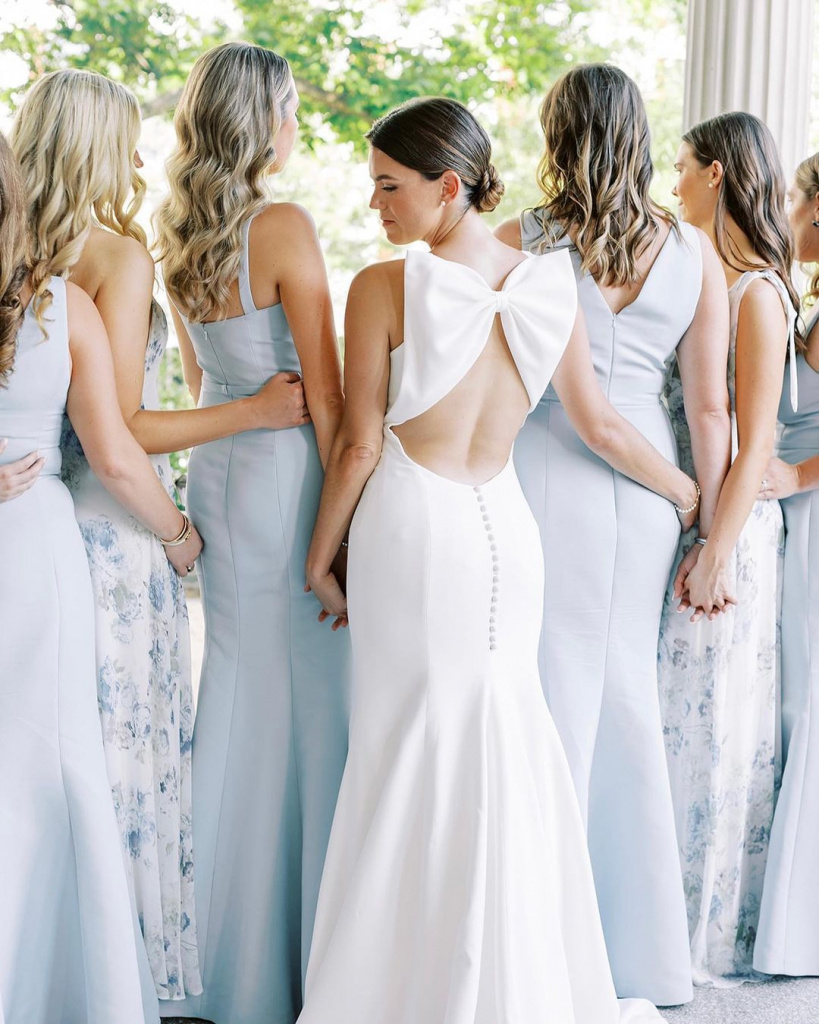
The size of your wedding can affect everything from your budget to the atmosphere of the event. So now, we'll explore how the type of wedding you're planning can impact your guest list and help you determine how many people to invite. Whether you're planning a large, formal affair or an intimate gathering with close friends and family, we'll provide you with some tips and considerations to help you make the best decision for your big day.
Elopement
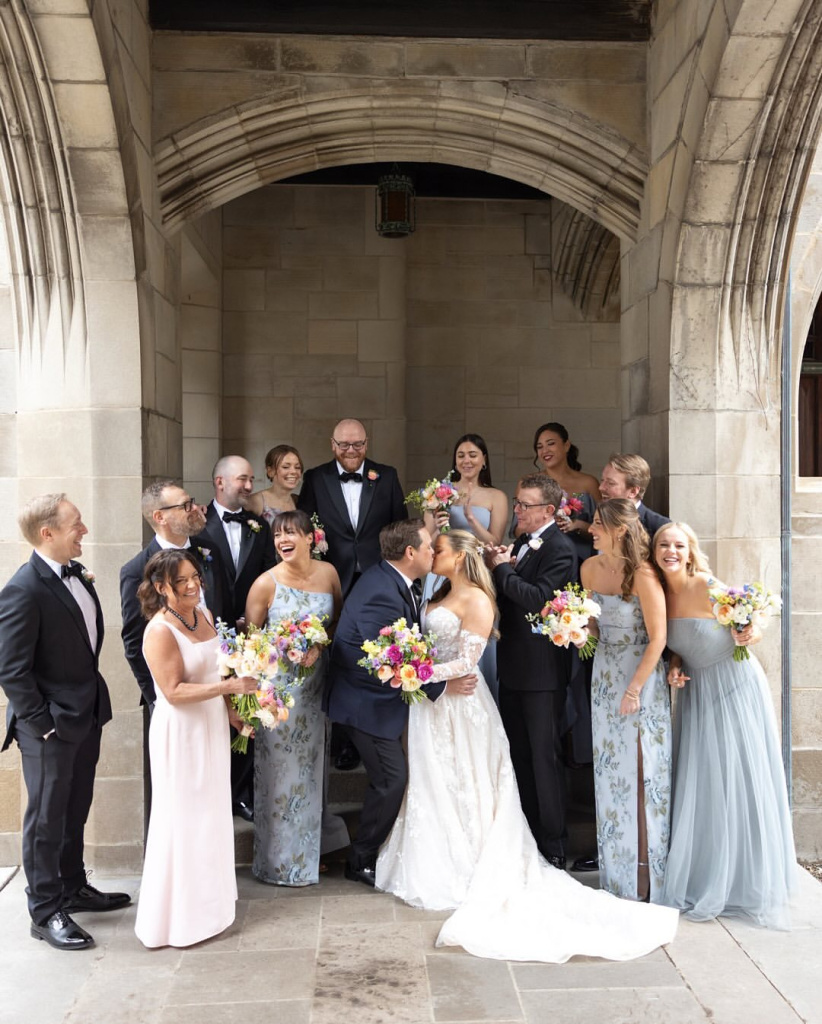
An elopement is a wedding ceremony that's usually kept small and intimate, with just a few close friends and family members in attendance. It's a great option for couples who want to keep things simple and avoid the stress and expense of a big wedding.
Pros:
- Intimacy: With an elopement, you can keep things small and intimate, which can be incredibly romantic and meaningful.
- Simplicity: By keeping the guest list small, you can simplify the planning process and avoid some of the stress and expense that can come with a larger wedding.
- Flexibility: With fewer guests to consider, you can be more flexible with the location, date, and time of your elopement.
- Focus on each other: By limiting the guest list, you can focus more on each other and your relationship, rather than worrying about entertaining a large group of people.
Cons:
- Hurt feelings: Some family and friends may feel left out or hurt if they're not invited to your elopement.
- Lack of celebration: Without a larger group of guests, you may miss out on the joy of celebrating with those closest to you.
- Less social interaction: With fewer guests, you may have less social interaction and conversation during your elopement.
- Fewer gifts: While gifts are certainly not the most important part of a wedding, eloping may result in fewer gifts from guests.
The Micro Wedding

A micro wedding is a type of wedding where the guest list is typically limited to around 20-50 people. It's a great option for couples who want to have a traditional wedding but on a smaller scale.
Pros:
- Intimacy: With a smaller guest list, you can create a more intimate atmosphere and spend more quality time with each of your guests.
- Budget-friendly: With fewer guests to accommodate, you can save money on things like catering, venue rental, and decor.
- Personalization: A smaller guest list allows you to add more personal touches to your wedding and make it truly unique to you and your partner.
- Flexibility: With a smaller guest list, you have more flexibility when it comes to choosing your venue and the date and time of your wedding.
Cons:
- Guest list challenges: With a micro wedding, you may have to make tough decisions about who to include and who to leave out. You may also have to navigate hurt feelings from those who aren't invited.
- Limited energy: With fewer guests, you may not have the same level of excitement and energy as you would with a larger wedding.
- Smaller gift registry: With fewer guests, you may receive fewer gifts or contributions to your registry.
- Reduced vendor options: With a smaller guest list, some vendors may not be willing to work with you or may charge a premium for smaller events.
The Only Friends And Family Celebration

This type of celebration typically involves inviting only close friends and family members to your wedding, with a guest list of 50-100 people or less. It's a great option for couples who want to have a meaningful and intimate wedding without the pressure of entertaining a large group of people. Basically, the pros and cons are pretty similar to the previous wedding type.
The Classic One
This kind of wedding often includes inviting 100-200 guests to join you in celebrating your wonderful day. It's an excellent choice for those that want a conventional wedding with all the festivities.
Pros:
- Celebration with loved ones: With a larger guest list, you can celebrate your special day with all of your close family members, friends, and colleagues, creating memories that will last a lifetime.
- More options: With more guests, you have a wider range of venue options, vendors, and activities to choose from, giving you more flexibility and customization for your wedding day.
- Festive atmosphere: A larger guest list can create a more lively and festive atmosphere, with more people to dance, socialize, and enjoy your wedding celebration.
- More gifts: With more guests, you're likely to receive more gifts and contributions to your registry, which can be a huge help as you begin your new life together.
Cons:
- Higher costs: With more guests to accommodate, you may face higher costs for venue rental, catering, and decor, which can add up quickly.
- More planning: A larger guest list requires more planning, organization, and attention to detail to ensure that everyone is comfortable and enjoying themselves.
- Less intimate: With more guests, it may be more challenging to spend quality time with each person and create a truly intimate and meaningful wedding celebration.
- Guest list challenges: With a larger guest list, you may face challenges in terms of managing RSVPs, seating arrangements, and coordinating with vendors to accommodate a larger group.
Supersized Weddings
To have a huge party with all of their loved ones and acquaintances sounds like a dream! It can also be a great option for couples who love to be the center of attention and want to share their big day with as many people as possible. You can invite everyone you've ever met and create a huge, fun-filled celebration that will be talked about for years to come. You can go all out with the planning and design! With a larger guest list, you have more flexibility to choose a venue that can accommodate more people, hire more vendors, and create a truly unforgettable experience for everyone in attendance.
Unfortunately, it’ll be more challenging to spend quality time with each of your guests. With so many people in attendance, you may not have time to chat with everyone or spend as much time with each person as you'd like.
What Percentage Of Wedding Guests Usually Show Up

Are you wondering what percent of wedding guests will eventually attend the big day? It's a common concern for couples, and understandably so - you want to make sure you plan and budget accordingly. While it's hard to predict exactly how many guests will attend your wedding, there are some factors that can give you a good idea of what to expect.
On average, about 80-85 percent of wedding guests that attend. So, if you invite 100 guests, you can expect around 80-85 people to actually show up. Of course, this can vary depending on a variety of factors, such as the location of your wedding, the time of year, and the overall cost of attending. If you're worried about having too many guests and going over budget, it's a good idea to be strategic with your guest list. Consider inviting only your closest family members and friends, and be mindful of inviting too many acquaintances or coworkers who may not be able to attend.
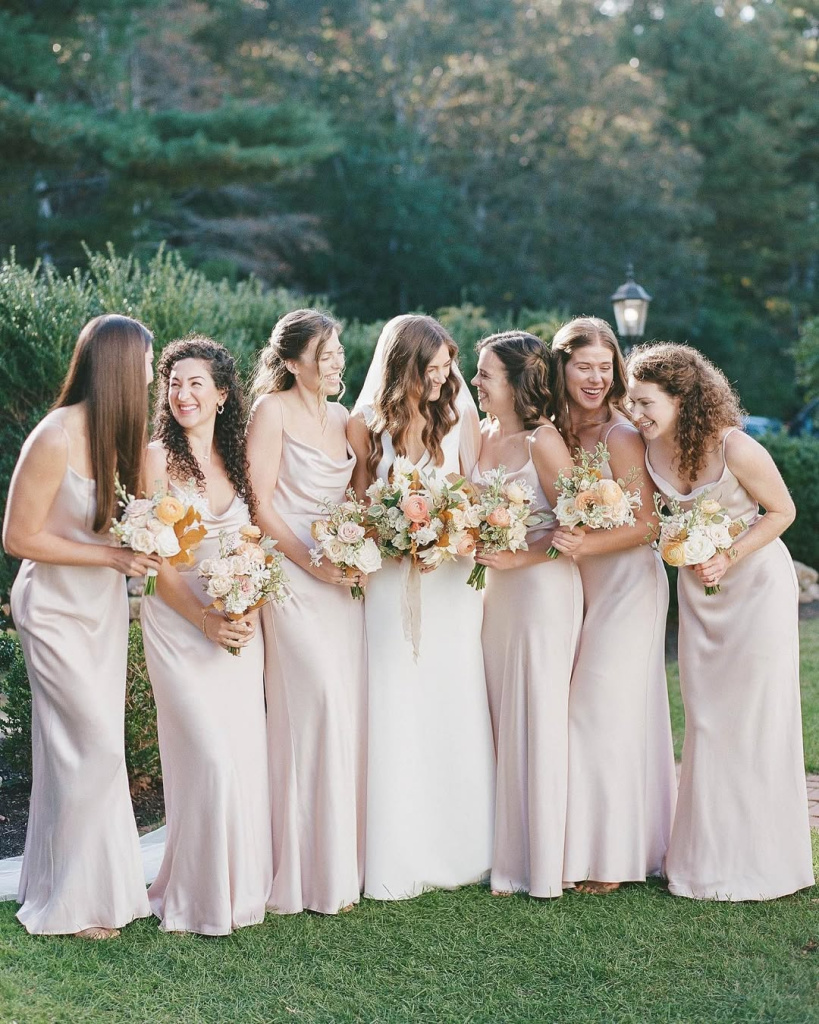
On the other hand, if you're worried about having too few guests and the party feeling lackluster, it's important to focus on creating a fun and memorable atmosphere for those who do attend. You can also consider sending out follow-up invitations or reminders to make sure everyone is on the same page and knows when and where to show up.







